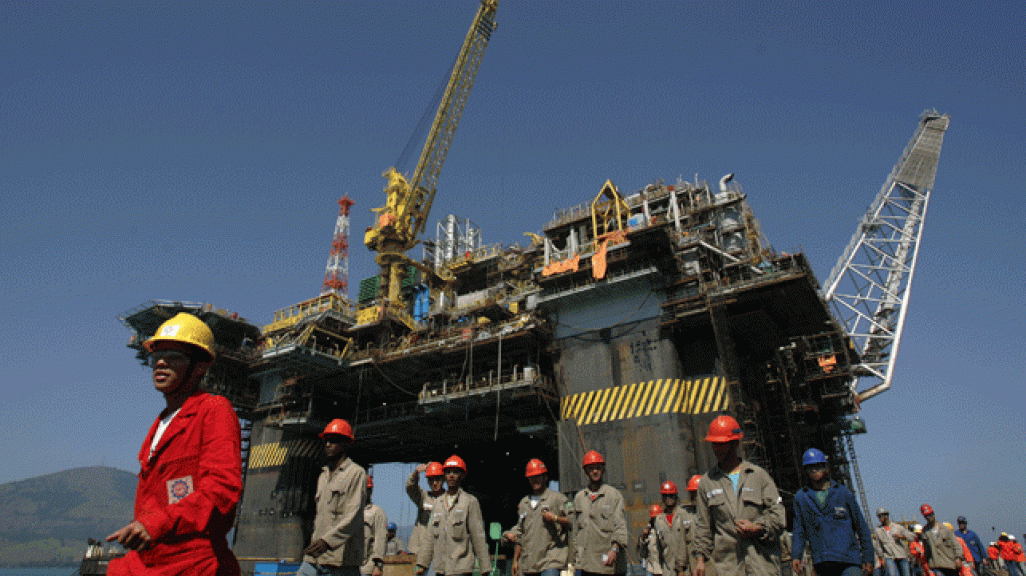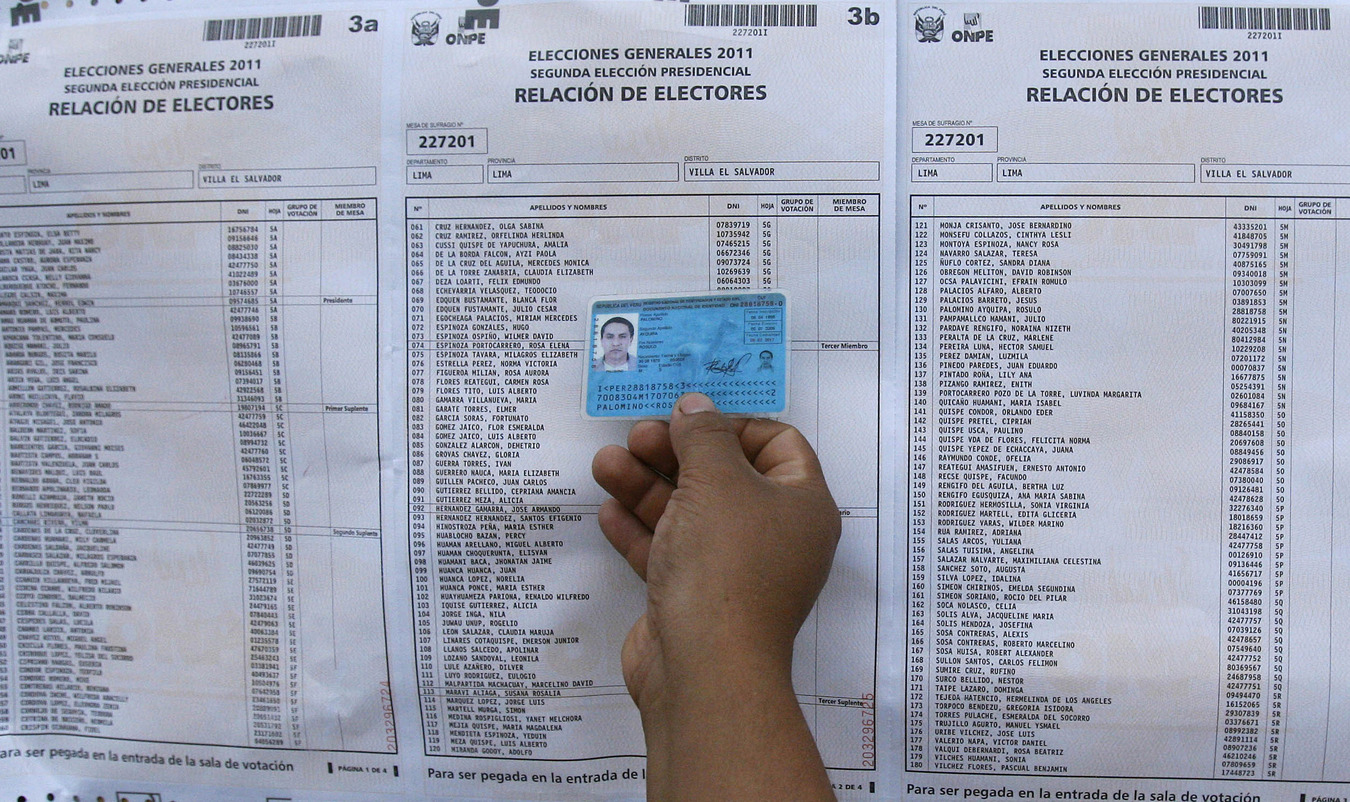Viewpoint: Why Brazil's Upcoming Oil Bid Rounds Are a Game Changer
Viewpoint: Why Brazil's Upcoming Oil Bid Rounds Are a Game Changer
May’s relatively small bid round is a sign of big things to come for Brazil’s energy sector, writes AS/COA’s Naki Mendoza.
On May 11, six small and locally based Brazilian energy companies placed winning bids to develop oil and gas blocks across the country. The eight blocks span just 93 square kilometers and drew only a modest $2.5 million in total signing bonuses. Aside from the closest of industry observers, the affair went largely unnoticed.
But it was significant for being the initial drop of a much more massive wave of energy investments that Brazil is hoping to usher in over the coming years. The May 11 tender was the first of four public oil and gas auctions that Brazil has planned for 2017 and the first of 10 auctions slated through 2019. The subsequent rounds will get much bigger and offer up larger stakes to attract the scale of investments that are more akin to the international oil industry.
The bid rounds coincide with major changes occurring at Petrobras, Brazil’s state-owned oil giant and the dominant player in the country’s energy industry. The fallout from and financial burdens of the Lava Jato scandal forced the company to shift course, and the firm is divesting $21 billion of assets across its entire value chain to focus more closely on developing its core base of pre-salt fields.
Taken together, the auctions and Petrobras divestments are part of what Brazilian energy officials describe as the most significant change in Brazil’s energy industry since the formation of Petrobras in 1953 by creating a host of opportunities for foreign investors. To facilitate those investments, the government implemented landmark reforms in October 2016 that shifted the energy sector toward a more open, competitive, and market-oriented approach. More broadly, Brasilia is positioning energy as a key industry to reignite Brazil’s lackluster economy. “Oil and gas is the closest opportunity to change the game in Brazil,” Márcio Félix, secretary of oil, natural gas, and biofuels at Brazil’s energy ministry, told a recent AS/COA gathering.
What’s on the table?
Next up, on September 27, Brazil’s National Agency for Petroleum, Natural Gas, and Biofuels (ANP) will auction off 287 much larger oil and gas blocks fanned out across the country. This marks the fourteenth public auction since the opening of Brazil’s oil sector and the first since 2015.
The blocks range across all assets classes: onshore, offshore, deepwater, mature fields, and frontier basins. Their diversity is intended to garner widespread interest among industry players of all sizes.
The scope of the resources is noteworthy. ANP calculates that in the Sergipe-Alagoas Basin, in Brazil’s northeast where 11 blocks will be auctioned, the “estimated unrisked” oil volumes are 15 billion barrels. The classification is an industry metric for oil believed to be present, though not necessarily commercially recoverable. For comparison, there are roughly 15 billion barrels of total “proven” reserves in Brazil, according to ANP.
A month later on October 27, ANP will host two separate auctions for pre-salt fields, which are the crown jewels of Brazil’s energy landscape. Pre-salt fields are licensed under a distinct contract structure and this will be only the second and third time that they will be put to public bid.
These vast hydrocarbon formations, trapped under thick layers of salt beneath the ocean floor, were considered among the world’s most important oil discoveries last decade and remain Brazil’s most prized energy assets. One well, for example, at the pre-salt Lula field—Brazil’s largest producing field—yields, on average, between 20,000 to 30,000 barrels of oil per day, according to the Brazilian Petroleum and Gas Institute, Brazil’s main petroleum industry association. That puts it at double the average daily output of wells in the Gulf of Mexico and 40 times greater than production from an onshore shale oil well in the United States.
ANP will host two separate pre-salt auctions on October 27: one for four “unitized” areas—portions of currently contracted pre-salt fields that spill over into unlicensed areas—and a second for four separate and undeveloped fields. The potential volumes of oil believed to be in play are again significant. Two fields that will be offered in the second October 27 auction contain 5.3 and 4.1 billion barrels of unrisked oil, respectively, according to ANP estimates.
Further out, ANP has also scheduled three bid rounds each for 2018 and 2019.
Why is all of this significant?
The bid rounds this year are Brazil’s first since 2015. Due to adverse market conditions from low oil prices, financial difficulties at Petrobras, and general political turmoil, Brazil held off from public auctions in 2016. By offering a vast array of acreage, including pre-salt fields, Brazil is reasserting itself as a destination for foreign investment. It is also the first time that ANP has announced a future calendar of bid rounds, with the goal of establishing the pattern of regularity and certainty that investors crave.
The Brazilian government is taking this step as international oil companies have been adjusting to the new reality of oil prices and showing a greater willingness to invest in places where market access, fiscal terms, and resources attractiveness offer the most productive return on their capital. A combination of those factors is why international oil companies decided to spend big in Mexico’s inaugural deepwater bid round in December 2016, despite the downturn in prices.
Oil companies commonly refer to investment choices as zero-sum decisions in which every dollar invested somewhere is a dollar that cannot be invested elsewhere. From Mexico’s energy reforms to labor pricing agreements in Argentina, countries in the region are undergoing a race to the top to offer attractive terms for foreign capital.
For its part, Brazil made huge progress on two fronts to court foreign investment. First, Congress removed the law in October 2016 that required Petrobras to operate all pre-salt fields with a minimum 30 percent equity stake. The change was done in part to alleviate the financial woes of Petrobras, which is the most heavily indebted oil company in the world. It also allows foreign companies to have greater control of their project investments. The October 27 auctions will be the first pre-salt bid rounds since the new law took hold.
Second, ANP lowered onerous local content requirements in February 2017 for upcoming auctions by around half. The move gives companies greater flexibility to manage their project supply chain costs.
Both reforms, in concert with Petrobras’s divestment of energy assets across the country, are a welcome sign for investors that the state is taking a step back from its participation in the sector.
The road ahead
The process before the upcoming bid rounds is still subject to scrutiny, with public commentary being solicited for contract terms. And while local content rules have been lowered for future auctions, the same high requirements are still in place for projects being developed from previous auctions.
Brazil’s service sector, meanwhile, has been decimated by Lava Jato investigations. Many industry service companies associated with the scandal have been blacklisted from contracts, in turn driving up project costs.
And of course, this is all occurring against the backdrop of renewed political scandal in Brazil. New corruption allegations against President Michel Temer now threaten his presidency, along with his political-economic agenda, which includes increasing private sector participation in the energy sector.
While the political backdrop cannot be ignored, industry appears indifferent to the internal political environment. This is due in part to the long-term view the sector takes for investments decisions, with 35- to 40-year horizons that outlast short-term volatility. It can also be attributed to the broader confidence that industry has in Brazil. “It is very important to state that we have never changed contracts in Brazil,” said Décio Oddone, director general of ANP, at AS/COA. “Contracts are sacred.”
Indeed, energy analysts have noted that while Brazil has previously changed the rules of the game to increase the government’s participation in the sector, the country has never expropriated or reneged on existing contracts. All changes to laws and regulations have applied to future investments, while keeping existing agreements in place. This might provide a grain of certainty as companies weigh the decision to invest in upcoming opportunities against the country’s current political headwinds.









